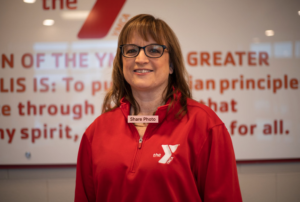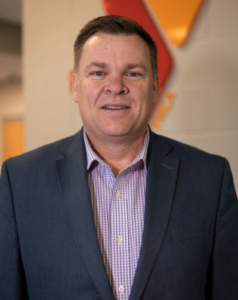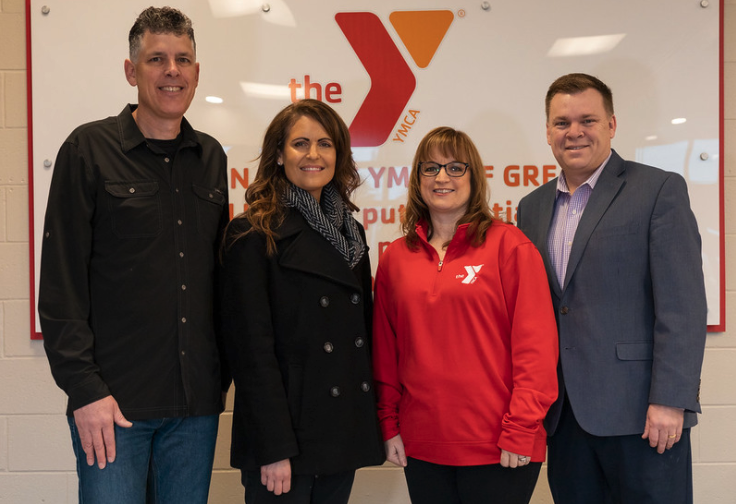City-Wide Initiative Seeks to Eliminate Stigma Surrounding Mental Illness
Photographer / Eli Beaverson
 About six years ago, Fishers Mayor Scott Fadness and City Council Member Todd Zimmerman had an important discussion about the stigma surrounding mental health issues. They realized that a city-wide initiative, now known as the StigmaFreeFishers campaign, directed toward combating such stigmas, would be well worth the effort on a city-wide scale.
About six years ago, Fishers Mayor Scott Fadness and City Council Member Todd Zimmerman had an important discussion about the stigma surrounding mental health issues. They realized that a city-wide initiative, now known as the StigmaFreeFishers campaign, directed toward combating such stigmas, would be well worth the effort on a city-wide scale.
One major component of that campaign is Fishers Cares, the city’s latest structured effort to combat mental and emotional problems, and the stigma that can surround them.
“We wanted to get faith-based groups, non-faith groups, nonprofits and other businesses in our community together for Fishers Cares,” Zimmerman explains. “We’re trying to cross denominations and get people of all walks of life to come together and talk about the stigma of things like mental illness, anxiety and depression. We need to get people to somehow start talking about their experiences so they realize they’re not alone.”
During a preliminary Fishers Cares brainstorming session in 2019, Zimmerman discussed ideas on how to structure a program to directly help those in need. Representatives from more than 40 local organizations and nonprofits showed up. Fishers Cares was officially launched and provides anyone in the community with an opportunity to schedule an appointment on the official StigmaFreeFishers website and meet at one of several Fishers locations with a trained volunteer for 30 minutes to one hour.
“You can sign up online,” Zimmerman says. “You can just meet someone or talk online and get away from whatever your situation is – basically anything that’s not a 9-1-1 situation, or a situation where you need licensed therapy,” Zimmerman says. “It’s a first line of defense. You’ll have someone to be a listening ear and allow you to talk about what’s bothering you or stressing you out.”
Anyone interested in participating can simply provide their name and basic contact information on the Fishers Cares website, such as an email address, to schedule an appointment. No personal information is collected or filed with the city.
“This is really the first step in a broader approach of trying to get the community to rally around each other and trust each other, so we don’t see as many tragedies – if we can avoid one suicide or one home situation that gets out of control from stress, that’s what this is designed for,” Zimmerman adds.
Every Fishers Cares volunteer undergoes a basic training program known as Mental Health First Aid, and Zimmerman says that while volunteers aren’t offering professional help, they can be a simple sounding board for those who need to discuss issues, problems or stressful situations.

“If someone has cancer that doesn’t generally ostracize that person, but if someone has a mental health crisis, then sometimes the tendency is to keep that person at an arm’s length,” Zimmerman says. “Every human being has some sort of anxiety, so at that ground level we should be able to have conversations without ostracizing people.”
Zimmerman stresses that all local entities are welcome to participate in Fishers Cares, including faith-based and non-faith organizations alike.
“We’re not focused on one particular type of group to get involved, whether that be one type of faith-based group or another,” he says. “This is about meeting wherever you can – a cafe, a church, a mosque or wherever – and having a talk.”
According to Zimmerman, in 2014 there were 151 immediate police detentions in Fishers.
“An immediate detention is where an officer goes to a home and is forced to temporarily detain an individual at risk of hurting themselves or others,” he says. “Back in 2015 when we first started thinking about StigmaFreeFishers, that was one of the things we looked hard at and wanted to change.”
Zimmerman hopes the Fishers Cares program becomes one of many local initiatives that help to strip mental illness of what he says is an unnecessary stigma.
“We really want people to sign up and be leaders by not being afraid to meet up with someone for coffee and just talk,” he says. “There’s nothing wrong with that. The problem with successful communities is we tend to hide things behind closed doors, and that can spill over into ugly situations.”
During the pandemic, much of the Fishers Cares program moved to online appointments. For additional details and updates on StigmaFreeFishers and the Fishers Cares program, visit stigmafreefishers.com, which includes an appointment scheduling page and you can also visit fisherscares.com. To learn more about volunteering for Fishers Cares, contact Todd Zimmerman at zimmermant@fishers.in.us.







Comments 1
This is great! As a mental health provider in our community who is also doing persistent Covid-19 research, I hope to stay more aware of happenings in our community!